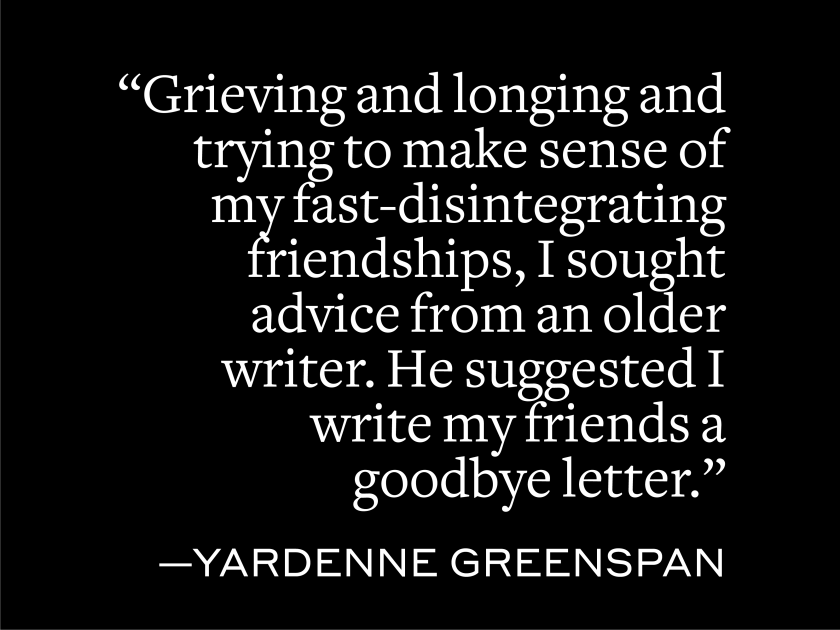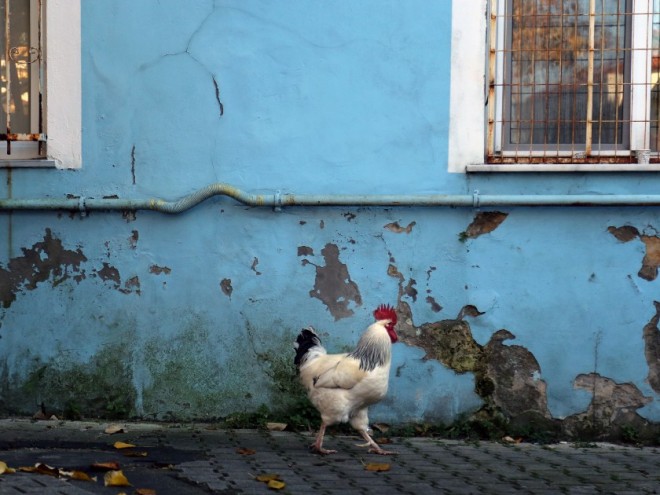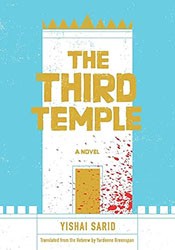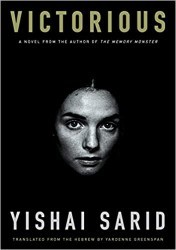
This piece is part of our Witnessing series, which shares pieces from Israeli authors and authors in Israel, as well as the experiences of Jewish writers around the globe in the aftermath of October 7th.
It is critical to understand history not just through the books that will be written later, but also through the first-hand testimonies and real-time accounting of events as they occur. At Jewish Book Council, we understand the value of these written testimonials and of sharing these individual experiences. It’s more important now than ever to give space to these voices and narratives.
In collaboration with the Jewish Book Council, JBI is recording writers’ first-hand accounts, as shared with and published by JBC, to increase the accessibility of these accounts for individuals who are blind, have low vision or are print disabled.
Two weeks after October 7th – as Israel’s counterattack against Hamas was picking up speed and claiming many lives, but before the ground invasion commenced, and while the death toll in Israel continued to rise, confusion plaguing dozens of families who were still waiting to learn whether their loved ones had been spared, murdered, or kidnapped – my writing group fell apart.
All at once, my relationship with several members of the group went south. They cited my social media activity — raising awareness of Hamas’s crimes, calling on the world to demand the release of hostages, and condemning protests that reframed murder and rape as resistance — as insensitive, nationalistic, and myopic. There may have been other reasons for the rift that developed, but I wasn’t given any, so all I have is my own understanding of the situation. We had years of close, intimate friendship under our belts. (If you’ve ever been part of a writing group, you know all too well the vulnerability this entails. Especially if, like me, you have been working on a memoir.) I spent a good long while looking back at every single thing I’d posted, but found no calls for violence in my words, no hatred directed at any group of people. I only found the fear, turmoil, and urge to make the world understand what any Jewish Israeli was expressing. Was that the problem?
Grieving and longing and trying to make sense of my fast-disintegrating friendships, I sought advice from an older writer. He suggested I write my friends a goodbye letter. “Don’t send it,” he explained. “Just write it as an exercise and see how it makes you feel.”
I tried. I had a document open on my desktop for weeks, but I couldn’t make any headway. My estimation of what motivated them to abandon me kept changing the more I learned about many American progressives and how they felt about Israel — not as a government, but as an idea. My feelings kept changing, too — shock taken over by sadness, then despair, then forgiveness, then the anguish of realizing how futile this work was.
Writing, in general, was feeling more and more like a pointless endeavor. I lost count of how many of my former peers at the Columbia School of the Arts had posted lies about Israel and jokes about how Israelis love to blame Hamas for every single problem. On Twitter and Instagram, hundreds of writers were making lists of “Zionist authors.” They cast a wide net, including any authors who had visited Israel, or whose books had been translated into Hebrew. One organization I came across posted images of “Intifada” graffiti and celebrations of the “breaking of the fence” — a reference to the breaching of the Gaza-Israel border during which Hamas militants invaded kibbutzim and towns in southern Israel, where they raped, murdered, mutilated, and kidnapped civilians and booby-trapped Jewish women’s genitalia.
Each day brought disheartening news from literary magazines and publishers. Some declared that they would adhere to BDS guidelines; others put out statements of solidarity with Palestine, which included hateful and unsubstantiated anti-Israel bias; still others published pieces that demonized the fight against antisemitism, and even justified the massacre of October 7th or claimed that the Israeli government had fabricated it.
One of the greatest blows was delivered when Guernica Magazine took down a piece – one that focused on the empathy and nuance required in this moment, and the suffering of both Israelis and Palestinians – because it had been written from an Israeli perspective. As one can imagine, this event, in which an essay by Joanna Chen was removed from Guernica Magazine following the protest resignations of its editorial staff, was particularly devastating to me. Like Chen, I am a Jewish-Israeli writer and translator, and like her I have always held strong left-wing views and supported the establishment of a Palestinian state both in advocacy and in national elections. The fact that voices in the liberal literary world could not tolerate a piece of writing that strived to find room for compassion and coexistence because it was written by an Israeli person – one who acknowledged that Israelis were also grieving and traumatized by the largest, most brutal massacre endured by Jews since the Holocaust — told me in no uncertain terms that my voice was no longer welcome in many literary spaces — I barely passed as human in them.
Perhaps most troubling of all: A few publications had edited their guidelines page to introduce new additions to the generally accepted prohibitions on hatred and bigotry in their submissions, adding in “no Zionism.”
While there are religious Zionists and liberal Zionists, Zionists who support the Israeli government and Zionists who abhor the government but rely on the State of Israel for a sense of safety in this world, the definition of Zionism is simple, and can easily be found in a Google search: it is the belief in a Jewish state in our historic homeland. It is neither an agenda of superiority nor a doctrine of expansionism. While anti-Zionist Jews are currently being tokenized and flaunted by those who foster anti-Israel bias, the fact is that a majority of Jews around the world identify as Zionists. This includes many Jews and Israelis who are politically on the hard-left and have profound criticism of the Netanyahu government, of IDF conduct in Gaza, and of the occupation of the West Bank. Seeing the words “no Zionism ” proudly announced on a literary website is a shock and a horror for many Jews. We’ve seen this qualification before. The American literary world did not come up with “no Zionism.” Soviet Russia thought of it first, when it launched its campaign to systematically strip Jews of every Jewish characteristic before turning to more violent methods of erasure, when the powers that be realized that a Jew by any other name was still, well, a Jew.
Even more startling is the fact that, as Dara Horn brilliantly explained in a recent Atlantic article, this choice is not perceived by those who make it as a contradiction or an aberration. The literary world — much like the academic world, to which it is deeply connected — perceives itself as being on a mission to make the world a better place. Which is another reason why I used to think I fit right in.
Historically, American Jews have skewed left. Liberal values made sense for newly arrived immigrants and first-generation Americans still seeking acceptance in a society that took them in but set impossible obstacles in their path to belonging. These values also matched the Jewish imperative for tikkun olam—making the world a better place.
This was true for me, too. I had grown up in a country that was majority Jewish and naively thought I had moved to a post-antisemitic America. Liberal values had always been a deeply defining part of my identity. I was happy — still am — to use whatever privilege I have in order to elevate others. In fact, when I moved to the US, I was excited to find what I’d thought was the perfect environment for me — the American literary industry. Here was a space concerned with the pursuit of justice, focused on including and highlighting underrepresented voices, and which seemed to lead the way for the world when it came to progressive, open-minded values.
But as it turns out, in the minds of many in literary circles, tikkun olam will be achieved by ridding the industry of Zionists. Whether or not they know what Zionism actually means, Jewish writers must come to terms with the fact that opposition to it in the literary world is pervasive , not an anomaly.
When one tries to point out this rising antisemitism and anti-Israel bias taking place in the literary world, we are inevitably met with skepticism, or, worse, told that we are playing the victim and “crying antisemitism” as a means of shutting down legitimate criticism of the Israeli government, or in order to justify the atrocities it commits. But calling for an end to the “Zionist project” is hardly criticism of the Israeli government, and challenging antisemitism has nothing to do with one’s views of the war. To call out this toxic trend is to become its target.
You can have years of experience living through intifadas and fighting for a two-state solution and still be thrown off by this. Perhaps it is the writer’s practice of workshopping and exposing ourselves to scrutiny and criticism. When a fellow writer or editor casts doubt on something we know to be true, it gives us pause. We start to question our own instincts. Perhaps that is the point.
For Zionist writers (read: many Jewish writers) the message is clear: we are no longer welcome. Or, rather, we could still be welcome, but only if we push the part of ourselves that loves Israel, lives in Israel, used to live in Israel, has relatives in Israel, or otherwise believes that Israel is an invaluable asset to the Jewish people, deep down into the most secret, unspoken recesses of our minds. In practice, this precludes many of us. Any disclaimer made by these publications about how BDS and similar sanctions are not intended to discriminate against individuals on the basis of religion or ethnicity is nothing but window dressing.
As this new literary landscape unfolds, a number of new publications have popped up since October 7th that are specifically designed for Jewish and Zionist writing. Some are focused on the production and publication of texts that cope with the trauma of the massacre, others are simply safe spaces for Jews to be Jewy. In a time that feels so fraught and unsafe, it’s wonderful to have safe spaces where we are welcome, invited, celebrated. No, that’s a ludicrous understatement. In what feels physically, emotionally, and spiritually like a profoundly dangerous moment to be Jewish, knowing that I might still have someplace to publish my work is a godsend.
But as reassuring and uplifting as these new publications are, their establishment is merely the other side of the same coin. More than an embrace of Jewish culture, it is a response to “no Zionism.” Jewish writers will utilize these new journals not only because we may feel safer these days in a Jewish environment, but because we feel inherently rejected by so many other publications, either because they told us so directly, or because they are making a series of unmistakable choices that communicates the sentiment to us in no uncertain terms.
Jewish writers will be faced with that age-old question that we have had to answer so many times before: do we assimilate for the sake of being allowed to continue moving within the literary industry (at least until the next time Israel is at existential risk)? Or do we stay true to the complexity of our whole identities, limited in our conviction to Jewish spaces only? Will we hide our stars or will we go, as my mother-in-law put it, “Back to the ghetto?”
It is a story we know in our bones. I used to think there was too much Holocaust education in Israel; that it started too early and was needlessly upsetting. Now I know exactly what it was for. Holocaust education isn’t about remembering. It’s about recognizing the signs.
I don’t want to hide, and I don’t want to choose. While not every piece of writing I create may be Jewish or Zionist in nature, while Israel might often come up in a critical tone in my writing, or not come up at all, my voice would not be my voice if I had to police my identity, to choose whether I can be a Jew or a memoirist, a Jew or an essayist, a Jew or a feminist, a Jew or a liberal, a Jew or an anti-racist, a Jew or a whole person, full of values and complexities. I’d rather be allowed to be both Jewish and human. I want to interact both with the Jewish and the non-Jewish world, not to be limited either in the audience I can reach or in what I can explore.
But if I am made to choose, then to me the answer is clear. My identity is unqualified and unequivocal. I am to myself what I am to those whose mouths fill with bile when they speak the word. I’m a Jew.
The views and opinions expressed above are those of the author, based on their observations and experiences.
Support the work of Jewish Book Council and become a member today.
Yardenne is a writer and Hebrew translator born in Tel Aviv. She was a regular contributor to Ploughshares from 2016 to 2023. Her writing has been featured in Literary Hub, Haaretz, Words Without Borders, Asymptote, Two Lines, and Apogee, among others. She has an MFA in fiction and literary translation from Columbia. Her translations of Where I Am by Dana Shem-Ur and the anthology West Jerusalem Noir were 2023 World Literature Today Notable Translations.



